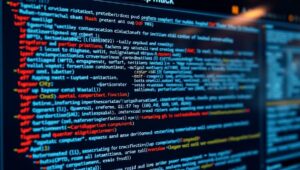Compilers in 2026: Smarter Optimizations and New Targets
The world of compilers is constantly evolving. As we look ahead to 2026, several key trends are poised to reshape how compilers function and what they can achieve. This article explores the advancements we can expect in compiler technology, focusing on smarter optimization techniques and the emergence of new target architectures.
Smarter Optimization Techniques
Compilers are the unsung heroes of software performance. They translate high-level code into efficient machine code, and their optimization capabilities directly impact the speed and resource usage of applications. By 2026, we anticipate significant progress in the following areas:
- AI-Driven Optimization: Machine learning is increasingly being integrated into compilers to learn optimal optimization strategies for different code patterns and hardware architectures. This allows compilers to make more informed decisions than traditional rule-based systems.
- Context-Aware Optimization: Future compilers will have a deeper understanding of the application context. This includes analyzing runtime data, user behavior, and environmental factors to fine-tune optimizations for specific scenarios.
- Cross-Language Optimization: As multi-language projects become more common, compilers will need to optimize code across language boundaries. This requires sophisticated inter-procedural analysis and optimization techniques.
- Energy-Aware Optimization: With growing concerns about energy consumption, compilers will play a crucial role in reducing the power footprint of software. This involves optimizing code to minimize CPU usage, memory accesses, and other energy-intensive operations.
New Target Architectures
Compilers must adapt to the ever-changing landscape of hardware architectures. By 2026, we expect to see compilers targeting a wider range of platforms, including:
- Specialized Accelerators: Domain-specific accelerators, such as those for AI, graphics, and networking, are becoming increasingly prevalent. Compilers will need to generate code that effectively utilizes these accelerators to improve performance.
- Quantum Computers: While still in their early stages, quantum computers hold the potential to revolutionize certain computational tasks. Compilers will be essential for translating high-level quantum algorithms into executable code for these machines.
- Neuromorphic Computing: Neuromorphic chips mimic the structure and function of the human brain. Compilers for these architectures will require novel programming models and optimization techniques.
- Serverless Computing: Serverless platforms are gaining popularity for their scalability and cost-effectiveness. Compilers can optimize code for serverless environments by minimizing startup time and resource consumption.
Implications for Developers
These advancements in compiler technology will have several implications for software developers:
- Increased Productivity: Smarter optimization techniques will automate many of the manual tuning tasks that developers currently perform, allowing them to focus on higher-level concerns.
- Improved Performance: Compilers will be able to extract more performance from existing hardware, leading to faster and more responsive applications.
- Greater Portability: Compilers will make it easier to port code to new architectures and platforms, reducing the effort required for cross-platform development.
- New Programming Models: The emergence of new target architectures will necessitate new programming models and languages that are tailored to these platforms.
Conclusion
The future of compilers is bright. As we move towards 2026, we can expect to see significant advancements in optimization techniques and target architectures. These advancements will empower developers to create more efficient, portable, and performant software for a wide range of applications.




